From cradles of the sport to a Naxal stronghold, these are the larger-than-life back-stories of the Indian hockey’s giant-killers
From cradles of the sport to a Naxal stronghold. Some criticised for not doing chores, others moulded by the heat of farms and factories. Living up to a brother who represented the nation, rejoicing a sister who bought a stick with daily wages. Playing hockey to escape an alcoholic father and to vindicate a father who fought societal norms. These are the larger-than-life back-stories of the Indian hockey’s giant-killers:
Rani Rampal (26, Forward) Shahbad, Haryana
Sport is very important for women in India, it makes us brave, you can speak; when you are right, you can speak for the right. You can say “I am not wron
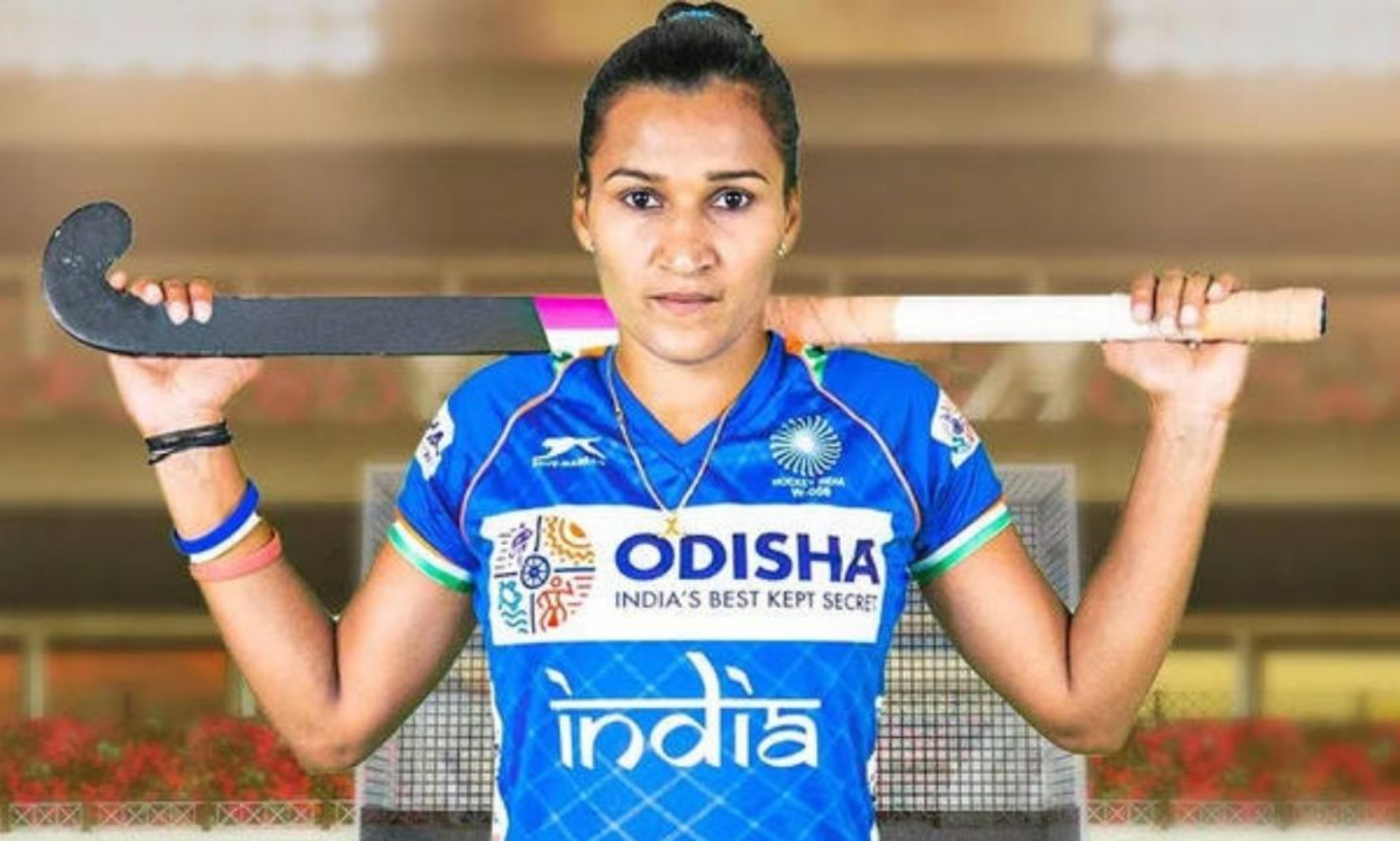
Rani has been playing international hockey for almost half her life, a journey that began with her playing with a broken hockey stick while wearing a salwar-kameez. She made her debut at the age of 14. Now 26, Rani is the key player of the team. With her unerring ability to be at the right place at the right time, she has been India’s saviour on many occasions. She has also helped the team win a Junior World Cup medal, Asian Cup, and was one of the key reasons why India could qualify for the back-to-back Olympics for the first time.
Neha Goyal (24, Midfielder) Sonipat, Haryana

For a teenaged Neha Goyal, hockey was an escape that came with two meals. This kept her away from her alcoholic father who would abuse her mother. The first-time Olympian worked alongside her mother in a cycle factory, earning Rs 5 to fix one spoke of a wheel. Goyal’s calling card in hockey is her ability to turn on her blistering pace and score goals. She made her debut for the national team at the age of 18. Since 2018, Goyal has won the silver medal at the Asian Games and has been conferred the Hockey India Midfielder of the Year Award.
Nikki Pradhan (27, Defender) Hesal, Jharkhand
We had decided after the Rio Olympics that coaches will come and go, but the work that has to be done, we are the ones who have do it. Us girls, 25 of us.

Hailing from an area known to be a Naxal stronghold, Pradhan claimed she does get scared when travelling back to meet her parents. Riddled with financial troubles while growing up, her elder sister, who also played hockey, had worked as a labourer in order to purchase a hockey stick. Pradhan got her first pair of hockey shoes and a stick when she moved to an academy in Ranchi in 2006. She was in and out of the national structure before finally securing a spot in the team in 2015, just in time for Rio, where she became the first player from her state to play at the Olympics.
Nisha Warsi (26, Midfielder) Sonipat, Haryana

A late-bloomer, Warsi only made her international debut two years ago. Partly, it was because she had a rather start-stop association with the game. She took up the sport since there was not much equipment required, and was keenly supported by her father who worked as a tailor. In 2015 though, he suffered a paralytic attack and her mother had to work at a foam manufacturing factory to make ends meet. It took Warsi another three years before she broke into the Indian team in 2018, and since then she’s been a mainstay.
Lalremsiami (21, Forward) Kolasib, Mizoram
I told my parents, if I have to play hockey, I have to leave the state. If I want to play long-term hockey, I have to face living away from home. They were afraid to send me out of the state but they said, you have chosen, so we must support.
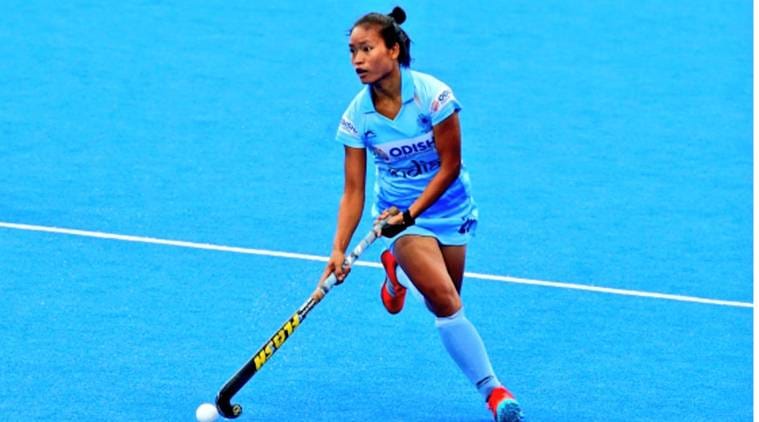
One of the finest forwards in the team, Siami, as she is called by her teammates, is central to the idea of playing high-tempo hockey. When she was first selected as a 16-year-old, Siami could not speak English or Hindi. She communicated mainly through sign language apart from talking in monosyllables. She shared a room with her idol Rani Rampal, who led Siami’s initiation into the team. She created history by becoming the first female player from Mizoram to make it to the Olympics and was the first Olympian from the state in 25 years after Archer C Lalremsanga.
Sushila Chanu (29, Midfielder) Imphal, Manipur
I don’t get affected by praise, I don’t accept it easily. I don’t praise people too much either.
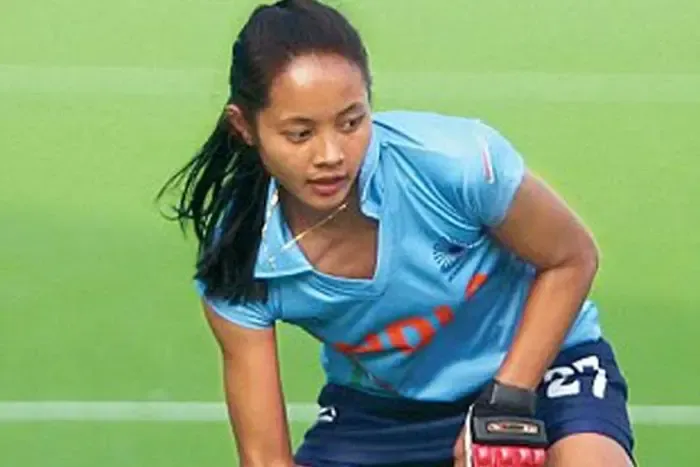
One of the senior-most players in the team, Sushila has been one of India’s most influential players in the last decade alongside Rani Rampal. The half-back from Manipur, who works for the Railways in Mumbai, captained the team at the Rio Olympics, which was the women’s team’s first appearance at the Games since 1980. She has over 150 caps for the national team, has played across the Asian Games, Commonwealth Games, and was instrumental in shutting out the Australians in the quarter-finals.
Deep Grace Ekka (27, Defender) Lulkidihi, Odisha
I don’t wear a mouth guard during penalty corners, I’ve never been hit in the face but I have no fear of that now. I did have some fear early, but now we’ve been made so fearless that we are not scared at all. If you don’t get out of fear, if you don’t shake it off, you can’t play properly.
Ekka comes from a family of hockey enthusiasts; her older brother Dinesh is a former India goalkeeper. Following in his footsteps, Ekka also wanted to be a goalkeeper but was pushed to play as a defender by Dinesh and her uncle (also a goalkeeper). Her fondness for the sport, and the large amounts of time she’d spend practising her craft prompted the other Lulkidihi-residents to criticise her for not doing her ‘chores.’ Her family supported her and she’d go on to be a part of the team that won the Asia Cup in 2017. With over 200 caps, she’s now playing at her second Olympics.
Salima Tete (19, Midfielder) Hesal, Jharkhand
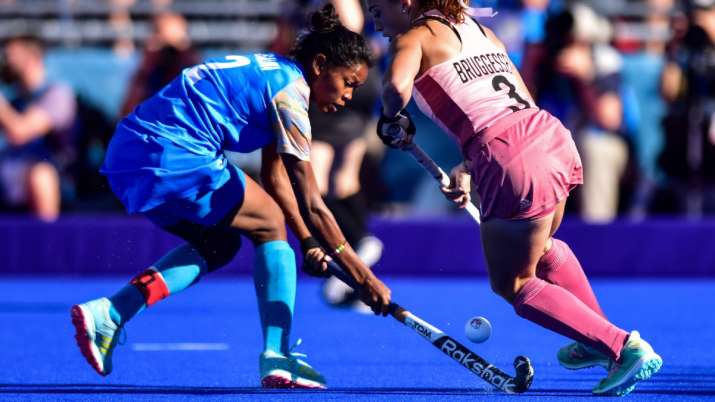
Salima Tete’s hockey journey began the same way most people in India fall in love with sports – in a dusty maidan where the stones needed to be removed and the temporary goalposts had to be constructed. She was born in the Naxal stronghold, which is also a hockey hotbed. She worked on the family’s farm, earned money and bought a hockey stick for herself. Ahead of the Olympics, she had won 29 caps for the senior national team. She’ll hope the next two will come with an Olympic medal.
Udita Duhan (23, Defender) Hisar, Haryana
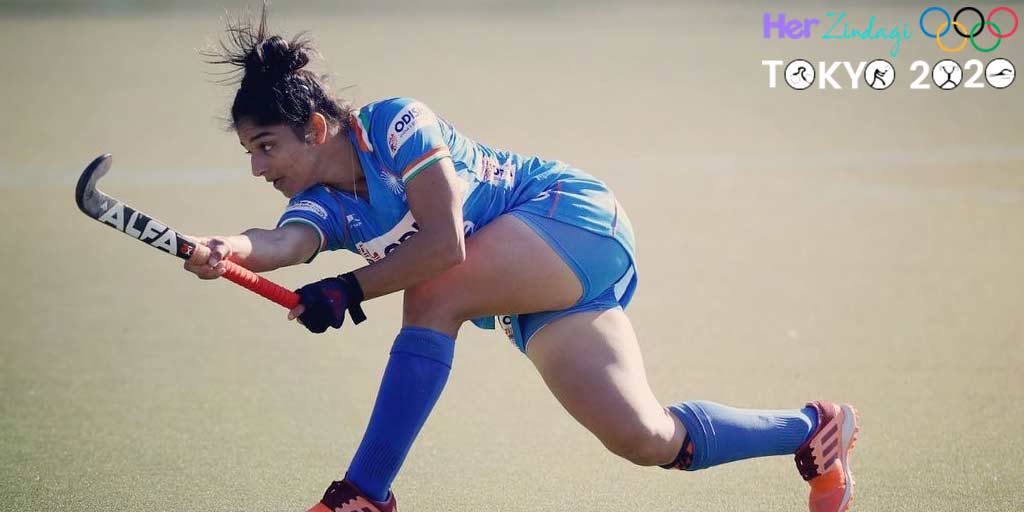
She followed in her father’s footsteps by playing handball. Hockey was never in the picture until the handball coach at her school suddenly stopped coming for practice. On her mother’s advice she decided to try her hand at hockey, and her speed caught everybody’s attention. In 2016 she was named captain of the team that won bronze at the U-18 Asian Cup. A year later she was promoted to the senior team and has become a permanent fixture ever since.
Vandana Katariya (26, Forward) Lucknow, Uttar Pradesh
We are Indian girls and so normally we wouldn’t look anyone in the eye…that’s how we respect elders. Sir (coach Sjoerd Marijne) had to work on that a lot. Today, we talk eye to eye, ask questions, discuss things.
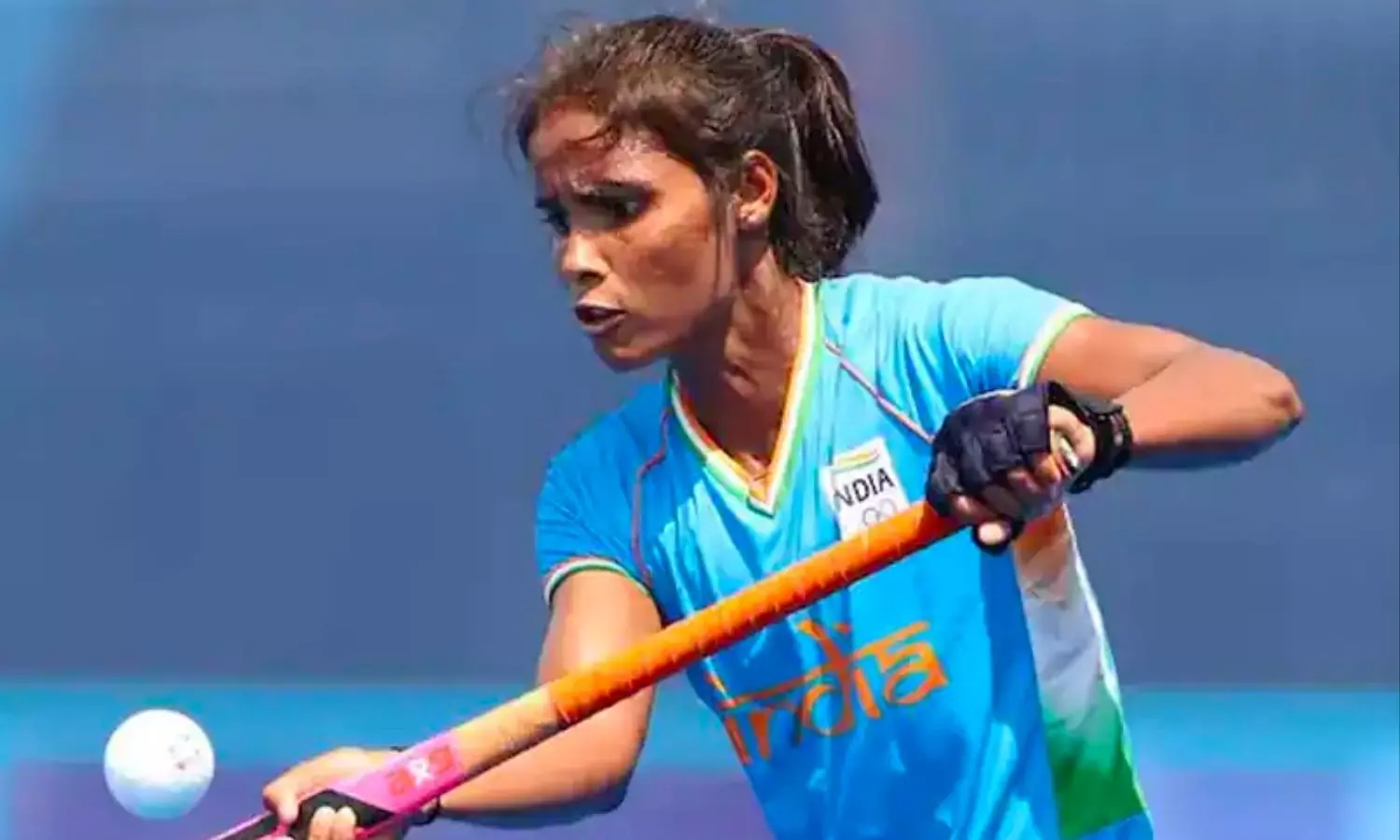
To seal a quarterfinal spot, India had to beat South Africa to stand a chance. In stepped Vandana Katariya, three times, becoming the only Indian woman to score an Olympic hat-trick. This came just three months after a personal tragedy. Growing up in Haridwar, locals dissuaded her family from allowing her to play sports instead of focusing on household chores. But her father would not have it and fought societal pressures to let her play. He passed away three months ago, and Katariya was unable to attend the funeral. Now she will play in an Olympic semi-final, a win short of a medal.
Navneet Kaur (25, forward) Shahbad, Haryana
I don’t wear (salwar-kameez) suits at home, and I say that if I have to wear suits compulsorily, I will not go out. I don’t have a problem with wearing suits, I like them, but the meaning behind it – why we should wear suits, that girls MUST wear them – that is bekaar (useless). That shouldn’t happen. It is one thing to wear it because you love it, you prefer it, that’s good. The thing that you must wear this – that is the problem I have. Kyon (why)? That’s not good. We can wear whatever we like. No one tells boys that you can’t wear this or that. Why are we told this?
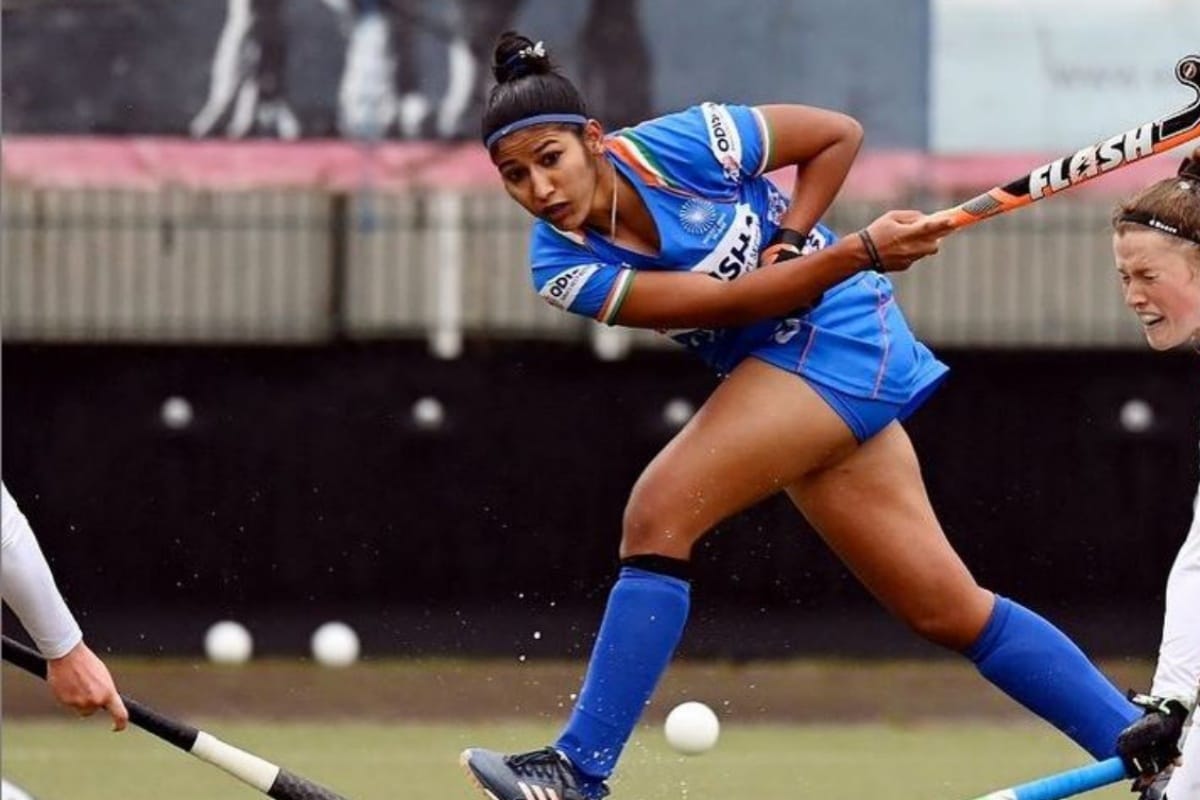
She is one of eight players in the team who also competed at the Rio Olympics. Navneet has been one of India’s most consistent forwards and has been a part of several path-breaking performances, starting with the 2013 Junior World Cup bronze medal. The forward from Haryana considers Australian great Jamie Dwyer as her hero and on Monday, she put up a dazzling performance to defeat her idol’s national team.
Monika Malik (27, Midfielder) Sonipat, Haryana

Her father Takdeer Singh Malik, an ASI with the Chandigarh Police, had a liking towards wrestling, but Monika asserted that he never forced the sport on her once she decided to follow the hockey route. Born in a village in the Sonepat district, she started her hockey training at a government school in Chandigarh. ‘Monu,’ holds a business administration degree from Kurukshetra University. On the hockey field, the national team’s backbone has won the Asia Cup in 2018, a bronze and silver medal at the 2014 and 2018 Asian Games respectively.
Gurjit Kaur (25, Defender) Amritsar, Punjab
Drag-flicking has to be a ‘shauk’, a calling. In hockey there is nothing one cannot learn to do, except you have to practice extra, follow those who are good at it, and keep working.

The designated drag-flicker’s only goal at the Tokyo Olympics so far was the one that won the quarterfinal against Australia. The defender has been chipping in with crucial goals throughout her international career, scoring eight at the Asia Cup triumph in 2017, and was the top scorer when India won the 2019 FIH Women’s Series Final. Nicknamed ‘Guri’, she wasn’t overly fond of sports but did try her hand at circle kabaddi. She was sent to a hostel, to avoid the long travel to school which was situated near a hockey ground. Watching people play tempted her to join in, and once she did, she never stopped.
Sharmila Devi (19, Forward) Hisar, Haryana
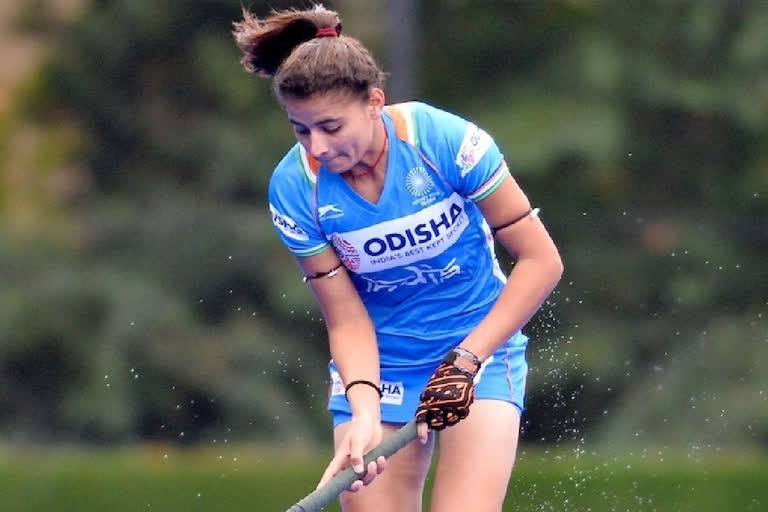
The teenager made her international debut in Tokyo at the Olympic Test Event in 2019. She was also on the scoresheet when India beat the United States 6-5 on aggregate to secure qualification. A self-proclaimed ‘naughty child,’ she took up the sport after accompanying her grandfather, a former national level player, to a local ground. She was intrigued by the balls used in hockey, volleyball and football, and took a while before choosing the sport she wanted to pursue.
Navjot Kaur (26, Midfielder) Kurukshetra, Haryana

She was eight when her father, a mechanic who wanted at least one of his children in sports, insisted she take up hockey. She started training in 2003 while at the Sanjay Gandhi National Park School. A midfielder on paper, her ability to poach goals is what saw her break into the senior team in 2012. Since then, she has gone on to win bronze and silver medals at the Asian Games in 2014 and 2018 respectively. She was also in the team that made it to the 2016 Rio Games, and the quarterfinals of the World Cup in 2018.
Savita Punia (31, Goalkeeper) Jodhka, Haryana
People in my village now think it’s okay to want their daughters admitted into a good college in another place. They tell my parents, Savita can go so far away, to other countries, other states, why can’t we send our daughters to another district?

There was a time Punia dreaded being the goalkeeper because she’d have to lug the heavy equipment across state transport buses, and wear it for a match during the summer heat. Now she’s the main choice goalkeeper, the team’s vice-captain, and one of the heroes of Monday’s quarter-final. Punia was encouraged to play hockey by her grandfather, but it wasn’t till her father spent a huge sum of money on a new kit that she started to take the game seriously. She grew in stature just as the women’s team started to improve rapidly, picking up two medals at consecutive Asian Games.
Namita Toppo (Midfielder)

I never think a match is over until the hooter blows. We may have a hard time, or bad luck, but until that hooter, it’s not over.
Lilima Minz (Midfielder)

We were in school and we had no direction, how far would we study, what we would do. In the village it was believed that girls should live like girls. Itna upar jaana nahin chahiye (You shouldn’t be climbing so high.) We had no national-level hockey player. I was the one who started it. Every year, now, people try to put their kids into the hostel.
Reena Khokhar (Defender)

I’m from Chandigarh, a city; a lot of the girls are from small towns and villages but we are a team. We know that it’s not a good thing to tease others for what you see as their weakness – ‘Oh, you don’t know English’, like that. That’s not a good sign for a team if you start to tease others, pounce on their weaknesses. It is our job to help and, if we do, the team will only grow.
Rajani Etimarpu (Reserve goalkeeper)

For girls like me, 4-5 years ago when people asked my family, ‘when will Rajni marry?’, my parents said that she’s playing well. Now nobody asks, they see that I’m doing well, my name is in the paper, they don’t ask. Wherever they go now, people respect my parents and it makes me very happy.
courtesy IE and ESPN
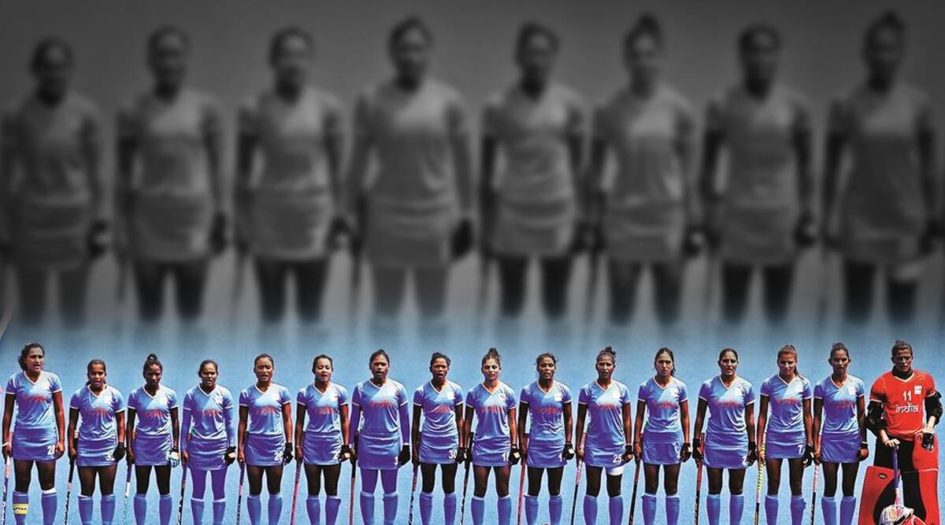
Leave a Reply